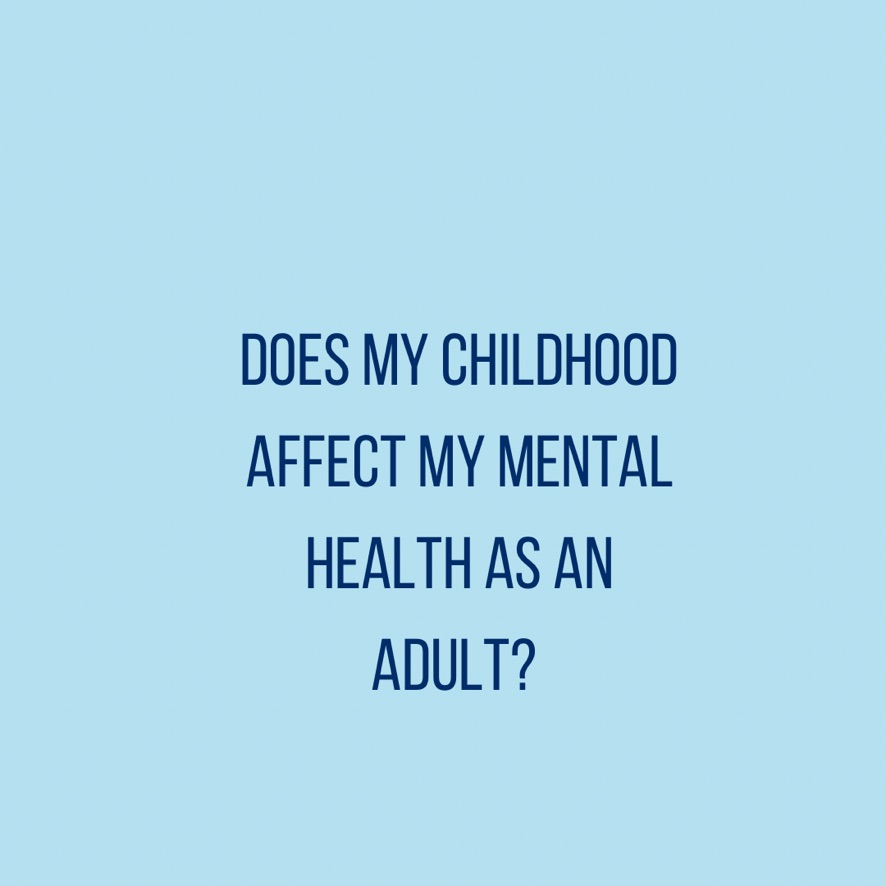It’s not uncommon to think of our childhood as a distant series of events that bears no weight on our present-day experience. Why would things that occurred while we were kids have anything to do with the way that we interact with the world now? We are independent adults with free will now, after all, and shouldn’t we be able to just live our lives regardless of how we were raised?
Yes, and no.
As a therapist, I absolutely believe in our ability to self-reflect, evolve, heal, become better communicators, and develop virtuous qualities. No matter our present situation, it is our birthright to learn and grow into the people we want to be, and it’s something that is available to all of us.
That being said, as we are on this journey, it’s incredibly important not to devalue or belittle adverse childhood circumstances and the impact they can have on us as adults. Ignoring the past can become a huge barrier for overcoming challenges in the present moment, as we may easily jump to self-critical, judgmental conclusions when asking, “Why am I like this?”
One study that exemplified the link between childhood experiences and health outcomes as adults is the Adverse Childhood Experiences (ACE) Study. The study demonstrated that undergoing adverse childhood experiences is related to a greater likelihood of later engaging in unhealthy habits, experiencing depression, and poorer overall health.
Around 8,000 adults in the Kaiser Permanente healthcare system had responded to surveys sent out after a health examination. They answered questions regarding their “first 18 years of life,” to determine how many “adverse childhood experiences” they had been exposed to. The highest possible number was 7, with experiences divided into two main categories of abuse and household dysfunction. Within those, there were: psychological, physical, and sexual abuse (in the “abuse” category) and substance use, mental illness, mother treated violently, and criminal activity (in the “household dysfunction” category).
Responses demonstrated that the greater the number of adverse conditions one had under the age of 18, the greater the chances of later using illicit substances, smoking cigarettes, experiencing depression, attempting suicide, as well as increased prevalence of diabetes, heart disease, and lung disease.
The authors of the study project that the link between adverse childhood experiences and adult health outcomes was mediated by the tendency to adopt unhealthy coping strategies to deal with painful emotions. For example, experiencing childhood abuse may produce feelings of anxiety, anger, or depression, and finding a way to effectively reduce those feelings in the short term (using a substance, for example), would create a habit leading to poor health outcomes in the long term.
The reason this study is helpful is that it provides a much-needed avenue to giving ourselves compassion rather than grief when we come up against anxiety, depression, and addiction.
As children, we are completely dependent upon the caregivers in our lives to protect us and nurture us. When we are exposed to abuse or a dysfunctional environment, we aren’t left with many options other than to adapt. And when we adapt to an unsafe or unstable environment, it may mean that we learn to anticipate rejection, neglect, or aggression on a constant basis. This leaves us in a state of anxious anticipation, feelings of helplessness, and anger that never was able to have a proper outlet.
Just because we turn 18 or move out of our parent’s house doesn’t mean that our nervous system leaves behind all that it learned while we were growing up. If we did not have caregivers that could soothe our anxiety, and perhaps whose actions were even the cause of our anxiety, how on Earth were we going to learn how to do that for ourselves?
We may have had other role models in our life that teach us how to self-soothe and to utilize a network of support, to know deeply that we are not alone. However, it’s also quite possible that we did not have that opportunity and we find other ways to address our pain, like using nicotine, alcohol, or food. Interacting with others naturally can bring us joy and comfort when our nervous system is in the proper state to receive social connection, but if we are constantly keyed up or on edge, spending time around people may be overwhelming, leading us to isolate and withdraw.
It may seem odd to blame historical circumstances for present day problems when it comes to our mental health, but we do this so naturally in many other contexts. Did it rain a lot this winter? Get ready for lots of blossoms in the Spring. Did you learn how to ride a bike but then went a long time without doing so? You’ll pick it up again in no time. Why not bring this same understanding into the realm of mental health?
Rather than telling ourselves, “There must be something wrong with me for _______________ (fill in the blank: Feeling depressed or anxious, hating myself, using drugs, drinking too much, etc.),” we can say, “Wow, I have this pain inside of me and I think it was in response to something difficult I went through. I developed some habitual ways of behaving and thinking in order to cope and now I am having a hard time letting them go and feeling safe again.”
In therapy, it is common to explore the environment and circumstances, both good and bad, that we grew up in. At times it can provide context to the symptoms we are having today and help us to better identify ways of addressing the root of our pain rather than trying to simply change the coping strategies we have adopted.
Just because we had adverse childhood experiences does not mean that we are sentenced to an adult life of strife. Yet minimizing the importance of these experiences does not help us to overcome them. We can become a great friend to ourselves as we fully honor the adversity we faced and how unbelievably difficult it was. A therapist or a trusted someone can help to witness, validate, and support you as you create new ways of being that were not taught to you by your early environment.
- Nina Tomkiewicz, LCSW
- To schedule an appointment with Nina, click here!



